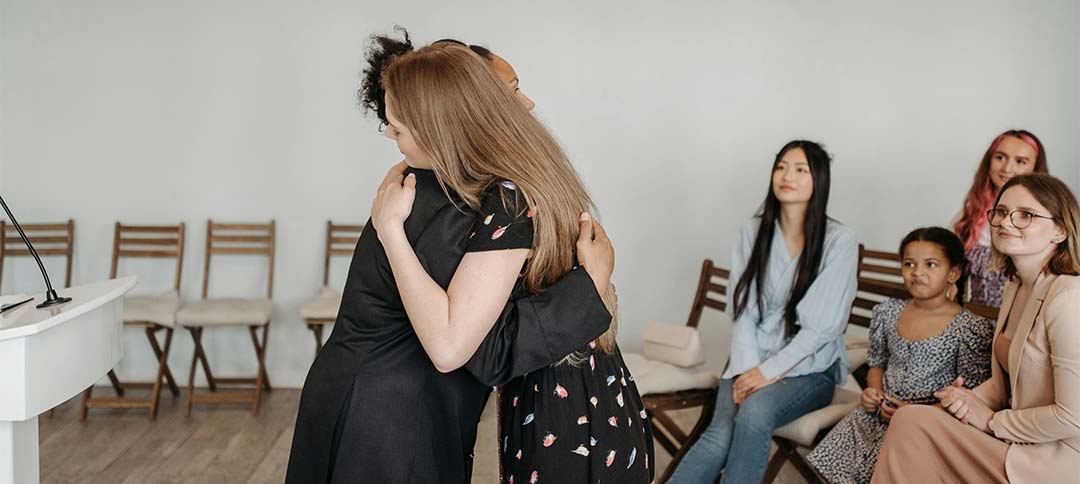Almsgiving is one of those words that sounds old-fashioned, but it’s really just a simple idea: giving to people who need help.
That could be money, food, clothes, or even your time. It shows up in a lot of religious traditions, but at the heart of it, almsgiving is about caring for people around you.
You don’t have to be rich. You don’t have to give everything away. You just have to be willing to notice when someone’s struggling, and do something about it. That’s the kind of generosity that makes a real difference, not just during Lent or holidays, but every day.
Whether you’re giving a few dollars, helping a neighbor, or supporting a cause you care about, almsgiving reminds us we’re all connected. And when we give from a place of kindness, something powerful happens, we grow, and so does the impact we make together.
Almsgiving in scripture and tradition
For a lot of people, almsgiving isn’t just a nice thing to do, it’s part of their faith. In the Catholic Church, for example, it’s actually a big deal. The Catechism teaches that giving to the poor isn’t optional. It’s something we’re all called to do. In fact, Jesus talks about it in Matthew 25, when he says that whatever we do for the “least of these,” we do for Him. That’s powerful. It means when you help someone who’s struggling, you’re doing something that really matters to God.
But this idea isn’t just Catholic. Almost every major religion talks about helping the poor. In Islam, almsgiving is one of the five pillars, a key part of living out your faith. In Judaism, giving to others is part of building a just world. Even in Buddhism and Hinduism, generosity is seen as a path to growth and connection.
No matter what your beliefs are, the message is the same: caring for others is part of living a good life. Almsgiving connects us to something bigger than ourselves. It’s a quiet but strong act that says, “I see you. You matter.”
Almsgiving as a pillar of religious life
In many faith traditions, almsgiving isn’t just a nice suggestion, it’s a core part of spiritual life. In Catholicism, especially during the Lenten season, it stands alongside prayer and fasting as one of the “three pillars” of Lent. These aren’t random traditions. They help us focus, clear out distractions, and remember what really matters.
Prayer connects us to God. Fasting helps us practice self-control. And almsgiving? It connects us to others. It’s the part where we take what we’ve been given and use it to help someone else. That could mean donating money, sharing a meal, or giving up something so someone else can have more.
Almsgiving is also a witness to fraternal charity. That’s just a fancy way of saying it’s how we show love to our neighbors, not just in words, but in action. And even small actions count. A warm meal. A kind note. A donation to a cause that’s doing good work. These are all ways to live out what we believe.
And here’s the beautiful part: when we give, it doesn’t just help someone else. It changes us, too.
How to practice almsgiving in everyday life
Almsgiving doesn’t have to be complicated. You don’t need a lot of money or a big plan. You just need to notice where there’s a need, and be willing to act. Sometimes that looks like donating money. Other times, it’s dropping off groceries for a neighbor or giving your old winter coat to someone who needs it more than you do.
You can also give your time. Volunteering at a food pantry, helping with a church fundraiser, or just showing up for someone who’s having a tough time, that’s almsgiving too.
These days, there are even more ways to give. You can donate online, round up your purchases for charity, or use platforms that make giving easy and automatic. The tools are there, you just have to decide to use them.
Almsgiving fits into real life. Families can practice it together by setting aside change in a jar. Schools and parishes can organize drives or fundraisers. And you? You can start small, because every little act of kindness adds up.
Why almsgiving is more than giving money
When people hear “almsgiving,” they usually think about donating money. And yes, giving financially is important, but it’s not the whole story. Almsgiving is about giving from the heart. It’s about noticing someone’s pain or need and saying, “I want to help.”
Sometimes that means giving material goods, like food, clothes, or school supplies. Other times, it means giving your attention. Sitting with someone who’s lonely. Listening without rushing. Offering encouragement when someone feels invisible. These are powerful gifts, too.
Almsgiving reminds us that generosity isn’t just about our wallets, it’s about our way of life. It’s how we show solidarity, how we live with purpose, and how we prove (with action) that everyone deserves to be seen, heard, and loved.
It also gives something back to us. When we choose to care for others, we grow. Our hearts get bigger. Our world gets wider. And we begin to see the kind of person we really want to be.
Almsgiving and the call to justice
Almsgiving isn’t just about helping someone get through the day. It’s about changing the systems that keep people in need in the first place. That’s where the idea of justice comes in. When we give with intention, not just out of habit, we start asking deeper questions: Why are so many families still hungry? Why do some people have more than they need while others have almost nothing?
This is where almsgiving becomes a work of justice pleasing to God. It’s not just about handing out help. It’s about building a world that’s more fair, more balanced, and more compassionate. That means supporting groups and organizations that are doing the hard work of fixing what’s broken.
In fact, some of the most impactful organizations are NGOs (nongovernmental organizations) dedicated to addressing root causes on a global scale, complementing direct relief efforts.
When you give through a nonprofit that works for long-term change, whether that’s fighting poverty, funding education, or protecting communities, you’re not just giving to a person. You’re investing in a better future for all of us.
Our values
Almsgiving isn’t about doing something big or flashy. It’s about noticing the need around you and choosing to care. Whether it’s dropping off groceries, donating money, or just checking in on someone, you’re saying, “You matter.” And that simple message can change lives.
Over time, these small acts build something strong. They remind us that we belong to each other. They reconnect us to our values. They shape the kind of world we want to live in, one where kindness leads, and justice isn’t just a dream.
So whether you give once a year or every week, know this: your generosity matters. It makes a difference. And it’s one of the most meaningful ways to live out what you believe.
Want to make your giving easier and more effective? Harness is here to help you grow your impact, without adding more to your plate.




